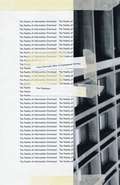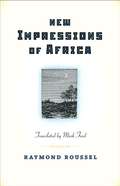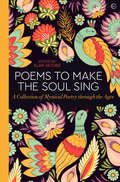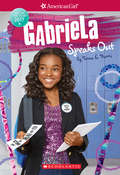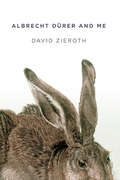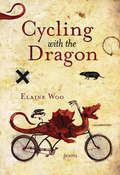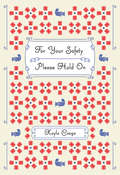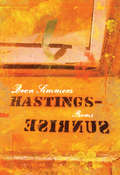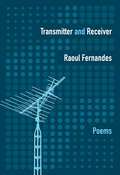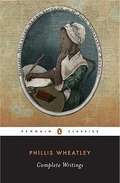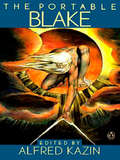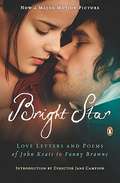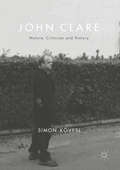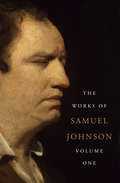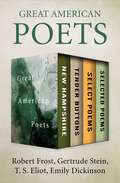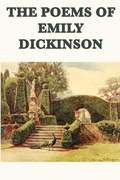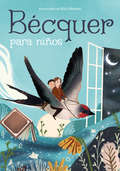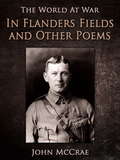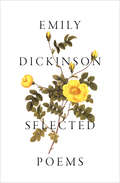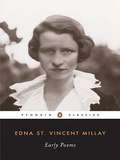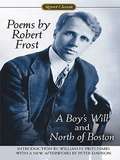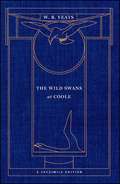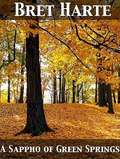- Table View
- List View
أسواق الذهب
by أحمد شوقىقلْ لا أعرِف الرِّقّ، وتقيَّد بالواجب وتقيَّد بالحقّ؛ الحرية وما هِيَه؟ "الحُمَيراءُ" الغالية، فِتنةُ القرون الخالية، وطَلِبةُ النفوسِ العالية؛ غِذاءُ الطّبائع، ومادّةُ الشرائع، وأُمُّ الوسائل والذَّرائع؛ بنتُ العلم إذا عمّ، والخلق إذا تمّ، وربيبة الصبر الجميل والعمل الجمّ؛ الجهلُ يئدُها، والصغائرُ تُفسدُها، والفُرْقةُ تُبعدُها؛ تكبيرةُ الوجود، في أُذُن المولود؛ وتحية الدُّنيا له إذا وصل، وصيْحة الحياة به إذا نَصَل؛ هاتِفٌ منَ السماءِ يقولُ له: يا ابنَ آدم؛ حَسْبُكَ من الأسماءِ عبدُ الله وسيّدُ العالَم، وهي القابلة التي تستقبله، ثم تسرُّهُ وتُسَرْبلُه، وهي المهدُ والتميمَة، والمُرضعُ الكريمة، المنجبة كـ "حليمة". ألبانُها حياة، وأحضانُها جنَّات. وأنفاسُها طيِّبات. العزيزُ من وُلدَ بين سَحْرِها ونَحْرها، وتعلق بصدرِها، ولعِبَ على كَتِفها وحِجرها، وترعرعَ بين خِدرها وسِترها.. ضجيعةُ موسى في التابوت، وَجاوَرَتْه في دار الطاغوت، والعصا التي توكأ عليها، والنَّارُ التي عشَا إليها، جبلّةُ المَسيح، السِّيدِ السَّميح، وإنجيلُه، الذي حاربُه جيلُه، وسَبيلُه، الذي جانَبَهُ قَبيلُه، طِينةُ محمدٍ عن نفسِه، عن قومِه، عن أمسِه، عن يومه، أنسابٌ عالية، وأحسابٌ زاكية، وملوكٌ بادية، لم يَدنهم طاغية، وهي رُوحُ بيانِه، ومُنحدَر السُّوَر على لسانِه، الحرِّية، عقدُ الملك، وعهدُ المَلْك، وسًكان الفُلْك، يدُ القلم، على الأمم، ومِنحة الفكر، ونفحة الشعر وقصيدة الدهر، لا يُستَعْظَمُ فيها قرْبان، ولو كان الخليفة عثمان بن عفان، جنينٌ يحمَلُ به في أيام المحْنَة، وتحتَ أفياء الفتنة، وحينَ البغي سيرة السَّامَّة ، والعدوان وتيرة العامَّة، وعندَما تناهى غفلة السواد، وتفاقم عَبث القوَّاد، وبين الدَّم المطلول، والسيف المسلول، والنظم المحلول، وكذلك كان الرُّسلُ يولدون عندَ عموم الجهالة، ويُبعثون حين طمُوم الضلالة؛ فإذا كَملَتْ مدَّتُه. وطلَعتْ غُرَّتهُ، وسطعَتْ أُسِرَّتُه، وصحَّتْ في المهد إمرتُه، بدّلت الحالَ غيرَ الحال، وجاءَ رجالٌ بعدَ الرِّجَال؛ دينٌ ينفسحُ للصادقِ والمنافق، وسوقٌ يتَّسع للكاسِد والنَّافق، مولودٌ حمْلُهُ قرُون، ووضعُهُ سِنُون، وحَداثتُه أشغالٌ وشئون، وأهوالٌ وشجون، فرحِمَ الله كلَّ من وطَّأ ومهَّد، وهيَّأ وتعهَّد، ثم استشهدَ قبلَ أن يشهَد. إذا أحرزت الأُممُ الحرِّيَّة أتت السيادةُ من نفسِها، وسعت الإمارةُ على رأسِها، وبُنِيَت الحضارةُ من أُسِّها؛ فهي الآمرُ الوازع، القليلُ المُنازِع، النبيلُ المشاربِ والمَنَازع؛ الذي لا يتخذ شِيعة، ولا صنيعة، ولا يَزْدهي بخديعة؛ خازنٌ ساهر، وحاسبٌ ماهر؛ دانقُ الجماعة بذمةٍ منهُ وأمان، ودِرْهَمُهم في حِرْزهِ دِرْهَمَان. "فيا ليلى" ماذا مِن أترَاب، وارَيْتِ التراب؟ وأخدان، أسلمتِ للديدان؟ عُمَّالٌ للحق عُمَّار، كانوا الشُّموسَ والأقمار، فأصبحوا على أفواه الرُّكَّاب والسُّمار؛ وأين قيسُك المعولِ؟ ومجنونُك الأوَّل؟ حائطُ الحقُّ الأطوَل، وفارسُ الحقيقةِ الأجوَل؛ أين مصطفى؟ زينُ الشباب، ورَيْحان الأحباب. وأوَّلُ من دَفع الباب، وأبرزَ النَّاب، وزأرَ دون الغاب؟...
أميرة الأندلس
by أحمد شوقى"الملك نشوان ومعه مضحكه مقلاص يدنو من زورق على الوادي الكبير فيثب فيه ويقول" الملك : انظر يا مقلاص إلى هذا الزورق ما ألطفه، صدق القول: كل صغير لطيف. مقلاص : إلا وظيفتي في قصرك فإنها لا لطيفة ولا شريفة، وإن هذا الزورق قد ينقلب فيأخذ شكل النعش، ولن يكون النعشُ لطيفًا أبدًا. الملك : هبه انقلب يا مقلاص فصار نعشًا، أليس النعشُ مركبَ كل حي وإن طالتْ سلامته! مقلاص : أما أنا فيعفيني الملك. الملك : لا يا مقلاص لا أعفيك، ولا أحسبك تدعني أسير في لجة النهر وحدي وأنا كما تراني نشوان. مقلاص : وإن كان ولابد أيها الملك فإني أقترح.. الملك : وما تقترح؟ مقلاص : أن أكون أنا المجدِّفَ وحدي. الملك : ولماذا؟ مقلاص : الأمر بيِّن! التيار مجنون، والسكر مجنون، وأنت سلطان وكل سلطان مجنون. وهذا الزورق خشبة لا عقل لها فهو أيضًا مجنون؛ وإني أربأ بحياتي أيها الملك أن أجمع عليها مجانين أربعة. الملك : (مستضحكًا) لا يكون إلا ما اقترحتَ يا مقلاص، تعال اركب وجدف وحدك واترك لي أنا الدفة. مقلاص : أما هذا فنعم. وإني أرجو أن تكون دفة هذا المركب الصغير أحسن مصيرًا في يديك من دفة المملكة. الملك : (مستضحكًا) تعال ثب؛ هات يدك. (مقلاص ينزل إلى الزورق ويأخذ المجدافين). الملك : انظر يا مقلاص وراءك، إني أرى قاربًا يندفع نحونا مسرعًا كأنه حوت مطارد مذعور. مقلاص : هو ذا قد دنا منا يا مولاي، فأحسن مسك الدفة واجتنب الصدمة، وأنا أزوده عنا بمجدافي هذا وأضربه ضربة تقذف به إلى الشاطئ الآخر من النهر. الملك : إياك أن تفعل بل ائسره، فلابد لنا أن نؤدب هذا الشاب المغرور، فإني أرى الملاح فتى كريم الهيئة فهو لاشك من أبناء أعيان أشبيلية. (يصطدم الزورقان ويظهر مقلاص ارتباكًا وجبنًا، فيقبض الملك على الزورق المهاجم بيد قوية ويقول لمقلاص) الملك : اقذف الآن به إن استطعت إلى الشاطئ الآخر من النهر (ثم يلتفت إلى الشاب الملاح ويقول) مكانك أيها الغلام الوقاح، ما هذه الجرأة على التيار وعلى شبابك هذا الغض النضير! وما غرك بالملك حتى قربت عودك من عوده تريد أن تأخذ عليه الطريق. الملاح : مولاي إن الرعية يهفون، وإن الملوك يعفون، وزورقي إنما اندفع بقوة التيار القاهر فوافق مرور مركبك المحروس، فكان ما كان مما أعتذر للملك منه. الملك : (بصوت منخفض) ويح أُذني ماذا تسمع؟ هذا الصوت أعرفه؟ (ثم يلتفت إلى الملاح قائلاً): قد عرفت أيها الفتى من نحن، فعرفنا بنفسك. (يرفع الملاح قناعه) الملك : (صائحًا) بثينة! الأميرة : (الملاح) أجل أيها الملك ابنتك وأمتك بثينة. الملك : عجبًا! أأنتِ هنا بين العبب والتيار، وعلى هذا العود الذي يشفق أبوك من ركوبه، وأبوك من تعلمين أشجع العرب قلبًا؟ الأميرة : ولم لا تكون ابنة الملك شجاعة القلب مثله! إن الأسد لا يلد إلا اللباة. الملك : (يهدأ غضبه) ومن أين مجيئكِ الساعة يا بثينة؟
The Poetics of Information Overload
by Paul StephensInformation overload is a subject of vital, ubiquitous concern in our time. The Poetics of Information Overload reveals a fascinating genealogy of information saturation through the literary lens of American modernism. Although technology has typically been viewed as hostile or foreign to poetry, Paul Stephens outlines a countertradition within twentieth- and twenty-first-century literature in which avant-garde poets are centrally involved with technologies of communication, data storage, and bureaucratic control. Beginning with Gertrude Stein and Bob Brown, Stephens explores how writers have been preoccupied with the effects of new media since the advent of modernism. He continues with the postwar writing of Charles Olson, John Cage, Bern Porter, Hannah Weiner, Bernadette Mayer, Lyn Hejinian, and Bruce Andrews, and concludes with a discussion of conceptual writing produced in the past decade.By reading these works in the context of information systems, Stephens shows how the poetry of the past century has had, as a primary focus, the role of data in human life.
New Impressions of Africa
by Raymond RousselPoet, novelist, playwright, and chess enthusiast, Raymond Roussel (1877-1933) was one of the French belle #xE9;poque's most compelling literary figures. During his lifetime, Roussel's work was vociferously championed by the surrealists, but never achieved the widespread acclaim for which he yearned. New Impressions of Africais undoubtedly Roussel's most extraordinary work. Since its publication in 1932, this weird and wonderful poem has slowly gained cult status, and its admirers have included Salvador Dal#xEC;--who dubbed it the most "ungraspably poetic" work of the era--Andr#xE9; Breton, Jean Cocteau, Marcel Duchamp, Michel Foucault, Kenneth Koch, and John Ashbery. Roussel began writingNew Impressions of Africain 1915 while serving in the French Army during the First World War and it took him seventeen years to complete. "It is hard to believe the immense amount of time composition of this kind of verse requires," he later commented. Mysterious, unnerving, hilarious, haunting, both rigorously logical and dizzyingly sublime, it is truly one of the hidden masterpieces of twentieth-century modernism. This bilingual edition ofNew Impressions of Africapresents the original French text and the English poet Mark Ford's lucid, idiomatic translation on facing pages. It also includes an introduction outlining the poem's peculiar structure and evolution, notes explaining its literary and historical references, and the fifty-nine illustrations anonymously commissioned by Roussel, via a detective agency, from Henri-A. Zo.
Poems to Make the Soul Sing: A Collection of Mystical Poetry through the Ages
by Alan JacobA beautifully designed collection of mystical poems to soothe, inspire and rejuvenate the soul. With a body of work spanning the centuries, from the Vedas to St Teresa of Avila, Rumi and Rilke, and arranged by transcendent themes, this book will connect readers with nature, with the stillness within themselves and with the Divine. When your soul hungers for peace, knowledge or comfort, there is no answer as profound as poetry. In a world that is increasingly noisy and disconnected from the Divine, this wonderfully inspiring collection of poems for the soul from mystics of all traditions encourages readers to listen to their own hearts, marvel at the wonder of nature and explore profound truths of life, death, eternity and God. With its elegant design and comprehensive selection of poets, the volume is ideal for gifting. Themed chapters allow readers to choose topics to explore, including: DIVINITY – what is the nature of God or the One? TRANSCENDENCE – what deep truths can we find in our spiritual quest? LOVE – how can we give and cherish most profoundly? DEVOTION – how should we explore and affirm our faith? PEACE – how can we find stillness amidst turmoil and loss? NATURE – what lessons can we learn from creation? SPIRIT – what is sacred about the individual self? From the Bhagavad Gita, the Vedas and the Song of Solomon to the Divine Comedy and the Rubaiyat of Mar Khayyam, readers will find all the great mystical writers, including Attar, Ansari, St Francis of Assisi, Lao Tzu, John Donne, John Bunyan, Gerard Manley Hopkins, Elizabeth Barratt Browning, Christine Rossetti and Walt Whitman, as well as many fine but lesser-known spiritual writers. A book to give as a thoughtful gift, and also one to treasure.
Gabriela Speaks Out: Girl of the Year 2017, Book 2) (American Girl: Girl of the Year 2017 #2)
by Teresa E. HarrisGabriela's second novel picks up where her first left off. Her BFF may be going to another school, but Gabby is determined to make sixth grade the best year ever! She's even ready to stand up to confident and intimidating Aaliyah Reade-Johnson if she makes fun of Gabby for her stutter. What she isn't ready for is Sixth Grade Initiation--a series of pranks the older kids play on the sixth graders. Gabby could stop the tradition if she wins the school election . . . but Aaliyah is running, too, which means Gabby's chances for victory are slim. Can Gabby find the courage to stand on her own, speak out for change, and do what seems impossible?
Albrecht Dürer and me
by David ZierothDavid Zieroth's Albrecht Dürer and me, an autobiographical travelogue spanning the author's journeys through central Europe, explores the transformative effect of dislocation. Inspired by and responding to art and music, history and war, architecture and place, this collection unearths knowledge that can only be realized by leaving home.Throughout the book, the observant eye of a visitor witnesses the layering of history and the contemporary, and contemplates the juxtaposition of the practical aspects of travelling ("noise") with emotional and spiritual evolution ("'Nude self-portrait'"). Responding to greats such as W.H. Auden, James Joyce and Albrecht Dürer, the speaker expresses how viewing foreign artwork or hearing unfamiliar music can spark a new awareness, not only of international culture, but of the expression of life and the human condition.The poems temper the high with the low, reflecting the many dualities of wanderlust. Stately homes are contrasted with war-scarred architecture, and sleepless nights, crowded trains and missed connections offset literature and symphony. "Berlin Album" reflects on the stains the past has left on modern-day Germany: "church bells at 6:00 p.m. / from spires on Borsigstrasse / pass an iron sound through rippled windows / so my body vibrates, and remembers / bullet holes in stone walls along the Spree." "on first hearing Mahler's Fifth" echoes that musical composition to mirror and evoke life's song and "weeds grew while I was away" describes the shock of returning home with the expectation of stasis only to find that things have changed.Attentive, humble and expertly crafted, Albrecht Dürer and me is a travel diary rife with evocative image, sensory detail and eloquent reflection, narrated with an honest, mature voice.
Cycling with the Dragon
by Elaine WooCycling with the Dragon is a personal investigation of family,love, culture, self, and the helpless feeling of "smallness." Elaine Woo's poems take the form of the words that they speak: she forms an "o" for the buoy that is a child's safety-raft (found in the solitude of a notebook and Harriet the Spy), and weaves a poem about fearing snakes and dreams into a descending slither.Woo's poems weave meaning with form, writing in a pastiche of diverse poetic voices who are small by virtue of age or status (be they women, children, ethnic minorities or the creatures of nature). And like tenacious seeds they break through to reach the sun, to face an abusive parent, bullies, the pain of shyness, envy, or racism.
For Your Safety Please Hold On
by Kayla CzagaFor Your Safety Please Hold On is a truly remarkable first poetry collection from debut talent Kayla Czaga. Her poems are already making waves-several from this collection have received award attention, including: The Fiddlehead's 23rd annual Ralph Gustafson Poetry Prize, The Malahat Review's 2012 Far Horizon's Award for Poetry and an Editor's Choice Award in ARC Poetry Magazine's 2012 Poem of the Year Contest. They have also been shortlisted for The New Quarterly's 2013 Occasional Verse Contest, longlisted for CBC's 2013 Canada Writes Poetry Contest and have appeared in literary publications across North America.The poems in For Your Safety Please Hold On move in thematic focus from family, to girlhood, to adulthood, each permeated by Czaga's lively voice and quick-witted, playful language. They test the line between honest humour and bitter reality in a sophisticated, incisive manner that tugs at the gut and feels true.The linguistic hopscotch of Czaga's poems about girlhood is often beautifully juxtaposed with feelings of menace or a first taste of smothering expectations-"She sits. She sips her bright pink fingers. / She slips into smart short haircuts, yes, / she does so, and does herself up just so." While her pin prick meditations on contemporary adulthood suggest a yearning for personal meaning and purpose on a larger scale-"I still wander, sometimes, / my coat closing the world out of my body, with pockets / full of garbage, with my slender steady want. I still / make the bed and at bedtime unmake it."The irrepressible energy of the poems in For Your Safety Please Hold On, paired with their complex balancing act between light and dark, humour and melancholy, innocence and danger, make this collection an extraordinary first offering.
Hastings-Sunrise
by Bren SimmersHastings-Sunrise is a love letter to a fleeting place and time. Bren Simmers's second collection captures her old East Vancouver neighbourhood in the midst of upheaval. As it is colonized by tides of matching plaid and diners serving pulled-pork pancakes, condo developments replace the small businesses and cheap rentals that once gave the area its charm.Much like opening a set of nesting dolls, leafing through the collection exposes further layers of depth and intimacy. Within the context of cultural change, Simmers explores the meaning to be found in everyday things: the making of a home, the life built from daily routines. At the same time, she reveals the dissonance that can occur between personal and large-scale change: "Twitter feed of melting sea ice, / colony collapse / while we picnic under pink ribbons, / kiss again like we mean it."Throughout the collection, the poet's eye unfailingly lights on the perfect details to evoke a scene: "On Mr. Donair's spit, / the earth rotates. Papal smoke emits / from Polonia Sausage, semis shunt / downtown." Visual poems forming maps of Christmas lights and autumn colours further bring the Hastings-Sunrise neighbourhood to life, illustrating the interweaving of human and natural spaces and locating "home" in between.Like a tree clothed in multicoloured yarn or a miniature house filled with free books, Hastings-Sunrise is a gift to readers, beautiful in its simplicity.
Transmitter and Receiver
by Raoul FernandesDebut talent Raoul Fernandes's first offering is Transmitter and Receiver, a masterful and carefully depicted exploration of one's relationships with oneself, friends, memories, strangers and technology.The three parts of this collection are variations building on a theme-at times lonely, sometimes adoring, but always honest. Wider areas of contemplation-the difficulty of communication, the ever-changing symbolism of language and the nature of human interaction in the age of machines-are explored through colloquial scenes of the everyday: someone eats a burger in a car parked by the river ("Grand Theft Auto: Dead Pixels"), a song plays on the radio as a man contemplates suicide ("Car Game"), and a janitor works silently once everyone else has gone ("After Hours at the Centre For Dialogue").Forthright and effortlessly lyrical, Fernandes builds each poem out of candor and insight, an addictive mix that reads like a favorite story and glitters with concealed meaning. Rather than drawing lines between isolation and connection, past and present, metaphor and reality, Transmitter and Receiver offers loneliness and longing hand-in-hand with affection and understanding: "The last assembly instruction is always you reading this. A machine / that rarely functions, but could never without you."
Complete Writings
by Phillis WheatleyIn 1761, a young girl arrived in Boston on a slave ship, sold to the Wheatley family, and given the name Phillis Wheatley. Struck by Phillis' extraordinary precociousness, the Wheatleys provided her with an education that was unusual for a woman of the time and astonishing for a slave. After studying English and classical literature, geography, the Bible, and Latin, Phillis published her first poem in 1767 at the age of 14, winning much public attention and considerable fame. When Boston publishers who doubted its authenticity rejected an initial collection of her poetry, Wheatley sailed to London in 1773 and found a publisher there for Poems on Various Subjects, Religious and Moral. This volume collects both Wheatley's letters and her poetry: hymns, elegies, translations, philosophical poems, tales, and epyllions--including a poignant plea to the Earl of Dartmouth urging freedom for America and comparing the country's condition to her own. With her contemplative elegies and her use of the poetic imagination to escape an unsatisfactory world, Wheatley anticipated the Romantic Movement of the following century. The appendices to this edition include poems of Wheatley's contemporary African-American poets: Lucy Terry, Jupiter Harmon, and Francis Williams. .
The Portable William Blake
by William BlakeIncludes Songs of Innocence and Songs of Experience complete; the best of the "prophetic books"; a selection of his other great lyrics; representative prose pieces from A Descriptive Catalogue, Public Address and A Vision of the Last Judgement; complete drawings for the Book of Job; and selected letters.
Bright Star
by John KeatsJOHN KEATS edited with an introduction by Miriam Chalk This book gathers the most potent passages from Keats together, including the famous 'Odes', the sonnets, the luxuriously sensuous 'Eve of St Agnes', the mysterious and atmospheric 'La Belle Dame Sans Merci', and extracts from 'Lamia', Endymion and Hyperion. British Poets Series. Bibliography and notes. John Keats is one of the few British poets who is truly ecstatic and wild. Despite the overly-ornate language, the often awkward phrases ('made sweet moan' in 'La Belle Dame Sans Merci'), despite the Romantic indulgences and the sometimes sexist views, the often over-simplification of natural and human processes and experiences, and despite the tendency to gush and exaggerate, Keats is one of the few poets who write in English who is truly wild and shamanic. He is the British poet closest to the pure intoxication of Arthur Rimbaud. Keats reaches the pinnacle of British poetry, as W. Jackson Bate, typical among critics, says: 'the language of his greatest poetry has always held an attraction; for there we reach, if only for a brief while, a high plateau where in mastery of phrase he has few equals in English poetry, and only one obvious superior. '
John Clare
by Simon KövesiJohn Clare (1793–1864) has long been recognized as one of England's foremost poets of nature, landscape and rural life. Scholars and general readers alike regard his tremendous creative output as a testament to a probing and powerful intellect. Clare was that rare amalgam ‒ a poet who wrote from a working-class, impoverished background, who was steeped in folk and ballad culture, and who yet, against all social expectations and prejudices, read and wrote himself into a grand literary tradition. All the while he maintained a determined sense of his own commitments to the poor, to natural history and to the local. Through the diverse approaches of ten scholars, this collection shows how Clare's many angles of critical vision illuminate current understandings of environmental ethics, aesthetics, Romantic and Victorian literary history, and the nature of work.
The Works of Samuel Johnson, Volume One: Life, Poems, And Tales, Volume 1 The Works Of Samuel Johnson, Ll. D. , In Nine Volumes (The Works of Samuel Johnson #1)
by Samuel JohnsonA brief essay on the life and genius of the prolific eighteenth-century English author, followed by a selection of his poetry, letters, and a novella.Under the pen name &“Dr. Johnson,&” English writer Samuel Johnson was a biographer, essayist, lexicographer, literary critic, moralist, playwright, poet, and travel writer. The son of a bookseller, he made so many contributions to the English language that he is regarded as one of the greatest figures of eighteenth-century literature. The first of nine volumes, The Works of Samuel JohnsonVolume One includes an essay on the life and genius of Samuel Johnson, followed by a collection of his poetry, including his &“Drury Lane Prologue,&” &“On the Death of Mr. Robert Levet,&” and &“The Vanity of Human Wishes.&” A selection of his personal correspondence is featured as well, along with his great satirical novella, The History of Rasselas, Prince of Abissinia.
Great American Poets: New Hampshire, Tender Buttons, Select Poems, and Selected Poems
by Emily Dickinson Robert Frost Gertrude Stein T. S. EliotThese four timeless poetry collections showcase the pioneering work of some of America&’s most beloved and influential poets. New Hampshire by Robert Frost: This Pulitzer Prize–winning collection features some of Frost&’s most enduring works, all inspired by the cold and wild New Hampshire winter. Along with the title poem, this volume includes &“Fire and Ice,&” &“Nothing Gold Can Stay,&” and &“Stopping by Woods on a Snowy Evening,&” which Frost himself called &“my best bid for remembrance.&” Tender Buttons by Gertrude Stein: Stein&’s first published work of poetry, this avant-garde meditation on ordinary living is presented in three sections: &“Objects,&” &“Food,&” and &“Rooms.&” Emphasizing rhythm and sonority over traditional grammar, Stein&’s wordplay has garnered praise from readers and critics alike. Selected Poems by T. S. Eliot: This twenty-four poem volume is a rich collection of Eliot&’s greatest works—including &“The Love Song of J. Alfred Prufrock,&” &“Gerontion,&” &“Sweeny Among the Nightingales,&” and others—all of which expertly explore the desires, grievances, failures, and heart of modern humanity. Selected Poems by Emily Dickinson: This collection of poems by &“one of America&’s greatest and most original poets of all time&” includes some of Dickinson&’s best-known works, reflecting her thoughts on nature, life, death, the mind, and the spirit (Poetry Foundation).
The Poems of Emily Dickinson
by Emily DickinsonAlthough Dickinson was a prolific private poet, fewer than a dozen of her nearly eighteen hundred poems were published during her lifetime. The work that was published during her lifetime was usually altered significantly by the publishers to fit the conventional poetic rules of the time. Although most of her acquaintances were probably aware of Dickinson's writing, it was not until after her death in 1886-- when Lavinia, Emily's younger sister, discovered her cache of poems-- that the breadth of Dickinson's work became apparent.
Bécquer para niños
by Gustavo Adolfo BécquerRimas y leyendas de Bécquer para primeros lectores en una preciosa antología ilustrada. Una antología ilustrada que recopila las mejores rimas y leyendas de Gustavo Adolfo Bécquer. La obra de este poeta romántico sevillano ha dejado una huella imborrable en nuestra literatura. En este libro, los niños descubrirán una selección de las mejores rimas y leyendas del autor, perfecta para adentrarse por primera vez en su obra. Amor, poesía y magia se combinan magistralmente entre sus páginas. Ilustrado deliciosamente, este libro convierte la pluma de Bécquer en el regalo perfecto para los más pequeños.
In Flanders Fields and Other Poems (The World At War #26)
by John MccraeIn Flanders Fields is a war poem in the form of a rondeau, written during the First World War by Canadian physician Lieutenant-Colonel John McCrae. He was inspired to write it on May 3, 1915, after presiding over the funeral of friend and fellow soldier Alexis Helmer, who died in the Second Battle of Ypres. According to legend, fellow soldiers retrieved the poem after McCrae, initially dissatisfied with his work, discarded it. "In Flanders Fields" was first published on December 8 of that year in the London-based magazine Punch. (Excerpt from Wikipedia)
Selected Poems: Emily Dickinson Poems Selected By Anne Car (Bcl1-ps American Literature Ser.)
by Emily DickinsonA collection of poems by &“one of America&’s greatest and most original poets of all time&” (Poetry Foundation). One of the nineteenth century&’s leading poets, Emily Dickinson wrote nearly 1,800 poems during her lifetime, though only a handful were published. This collection includes some of Dickinson&’s best-known works, reflecting her thoughts on nature, life, death, the mind, and the spirit. &“Emily Dickinson is one of our most original writers, a force destined to endure in American letters. . . . Without elaborate philosophy, yet with irresistible ways of expression, Emily Dickinson&’s poems have true lyric appeal, because they make abstractions, such as love, hope, loneliness, death, and immortality, seem near and intimate and faithful.&” —The Atlantic &“Emily Dickinson did not leave any poetics or treatise to explain her life&’s work, so we can come to her poetry with minds and hearts open, and unearth whatever it is we need to find. Her oeuvre is a large one and most of her work was done in secret—she didn&’t share most of what she wrote. Ten or so poems were published in her lifetime, mostly without her consent. She often included poems with letters but, after her death, the poet&’s sister Vinnie was surprised to find almost eighteen hundred individual poems in Dickinson&’s bedroom, some of them bound into booklets by the poet.&” —Publishers Weekly &“Dickinson found love, spiritual quickening and immortality, all on her own terms.&” —The Guardian
Early Poems
by Millay Edna St. VincentOne of the most successful poets in America and a fascinating literary figure of the early twentieth century, Edna St. Vincent Millay found her voice in a national poetry contest at the age of twenty. Her poems received critical praise and became the first step toward receiving the Pulitzer Award years later. An acclaimed poet of the Jazz Age, this liberated, often rebellious, woman enchanted us with her beautiful sonnets and lyrics, even as she surprised us with her unconventional personal life. This vibrant volume includes the complete selection of poems from Millay's first three books. Each gem reflects a different facet of the author's versatility. Renascence and Other Poems was Millay's first collection of poetry, a literary sensation when it was published in 1912. Acclaimed by critics for its remarkable use of compelling language and imagery, it is a deeply personal work that reflects the poet's spiritual awakening, using the themes of death and resurrection. In contrast, the poetry in A Few Figs from Thistles represents a cynical stage, a time of rebellion, and a search for personal freedom, as depicted in her famous line, "My candle burns at both ends. " Part beauty, part despair, the free verse and heartfelt sonnets of Second April are an expression of Millay's feelings about love and disillusionment. Eloquent, daring, and sometimes bittersweet, these masterful lyrics exemplify the best work of a complex, passionate, and gifted poet. Includes a selection from the Common Core State Standards Initiative: "Afternoon on a Hill. "
Poems by Robert Frost
by Robert Frost100th Anniversary Edition Poems by Robert Frost A Boy’s Will and North of Boston The publication of A Boy’s Will (1913) and North of Boston (1914) marked the debut of Robert Frost as a major talent and established him as the true poetic voice of New England. Four of his volumes would win the Pulitzer Prize before his death in 1963, and his body of work has since become an integral part of the American national heritage. This is the only edition to present these two classics in their original form. A Boy’s Will introduced readers to Frost’s unmistakable poetic voice, and in North of Boston, we find two of his most famous poems, "Mending Wall” and "The Death of the Hired Man. ” With an introduction by distinguished critic and Amherst professor William H. Pritchard and an afterword by poet and critic Peter Davison, this centennial edition stands as a complete and vital introduction to the work of the quintessential modern American poet. Introduction by William H. Pritchard Afterword by Peter Davison .
The Wild Swans at Coole: A Facsimile Edition (Yeats Facsimile Edition)
by George Bornstein William Butler YeatsA stunning facsimile of the 1919 first edition of William Butler Yeats’s The Wild Swans at Coole: an elegant volume showcasing these poems as they would have first been read and a complement to facsimile editions The Winding Stair and The Tower.Published in 1919 during W.B. Yeats’s “middle stage” and composed of poems written during World War I, The Wild Swans at Coole is contemplative and elegiac. This collection captures Yeats at a time when he was looking back on his life, coming to terms with the realities of modern war, reflecting on lost love, and defining his place in the world as a poet. It features forty poems, among them “The Fisherman,” “In Memory of Major Robert Gregory,” “The Wild Swans at Coole,” and “On Being Asked for a War Poem.” This facsimile of the original 1919 edition presents the reader with the work in its original form, with handsome old fashioned type, how readers and Yeats himself would have seen it in the early twentieth century. A great gift book and collector’s item, The Wild Swans at Coole also includes an Introduction and notes by esteemed Yeats scholar George Bornstein.

